Search Results
Search
Filter results
Advanced Filters
Your search returned 288 Solutions
-
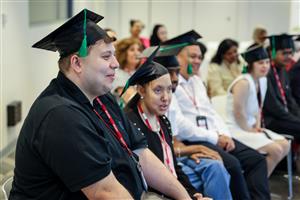
Vocational training for young people with intellectual disabilities in the Arab region
SEDRA Foundation's ‘Learn and Work’ Programme, UAE: Assists young people with intellectual disabilities in workforce transition. Offers hybrid learning and internships, concluding with a certificate from BUiD. In 2022, supported 25 individuals, with six securing full-time jobs.
Learn and Work Programme, United Arab Emirates -
Multiple tailored solutions offer physical and financial independence
In the Alhassan Foundation more than 50 percent of the board members and 80 percent of the employees are wheelchair users. The Foundation aims for wheelchair users in Egypt to reach higher levels of inclusion and independance in all aspects of life, including education, employment, and sports.
Alhassan Foundation, Egypt -
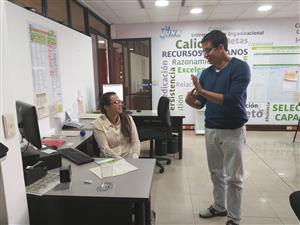
National Training Service making itself accessible and inclusive
SENA is a public entity for work training and human develop and the only one in Colombia committed to guidelines for inclusion. SENA has counsellors in its 33 offices nationwide and provides 117 mobile training centres for remote regions. In 2019, 1,543 jobs for people with disabilities were placed.
SENA - The National Training Service Colombia, The National Training Service (SENA), Colombia -
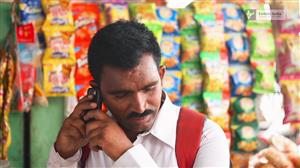
Mobile phone-based information sharing service about accessible opportunities in rural India
Namma Vaani is a voice-based social network, where information is shared via mobile phones (no smartphone and web-access needed), which allows users to listen and respond to voice messages from the disability community regarding education and employment opportunities, workplace solutions, enhanced life skills, and more.
Enable India, Namma Vaani, India -

How to successfully apply for jobs in the public and private sector
Participants go through an evaluation process, which is summarised in an employment profile. Afterwards, training is recommended to complement existing interests and skills. Job placement is carried out using a special job-matching software, which is also available through the Ministry of Labour and private partner companies.
Saraki Foundation, Project “Effective Labour Inclusion”, Paraguay -
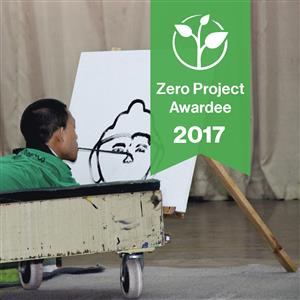
Training and seed financing within local communities
Persons with disabilities and their family members are provided with vocational training depending on their interests and skills. Successful graduates are then provided with seed capital on a loan basis so they can start their own businesses. The costs of the initiative are shared between the Karuna Foundation and the community
Karuna Foundation, Project “Inspire2Care”, Nepal -
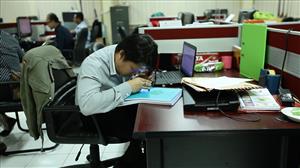
A variety of approaches to create jobs for people with visual impairments
The first phase started in 2007 and focused on technology to increase the learning potential of students with visual impairments. From 2012 to 2013, the emphasis was on vocational preparation, technological applications and advocacy for inclusive universities. 117 people found employment through the programme.
ICEVI - International Council for Education of People with Visual Impairment, Nippon Foundation Higher Education Project, Cambodia -
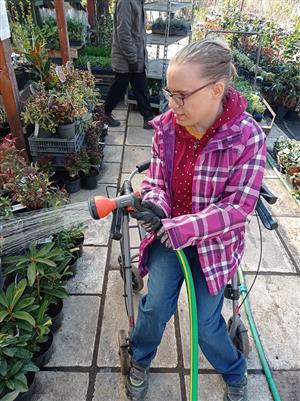
Youth House: Empowering vulnerable young people with disabilities not in education, employment, or training(NEET)
Salva Vita Foundation, Hungary: Empowers NEET youth through activities like animal-assisted therapy and job coaching. From 2018 to 2022, supported over 140 participants, with around 70 finding employment.
Youth House, Hungary -
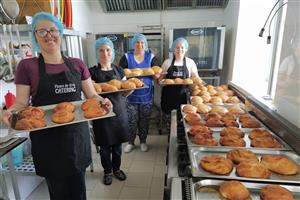
A catering service training and vocation programme
Floare de Cireş is a catering service in the town of Razeni in Modava founded in 2012 to give disadvantaged young people a chance to get their first job. In 2015 the project was extended to include a workplace training programme, which more than 100 people with disabilities had completed by 2020.
Eco-Razeni Association, Floare de Cireş, Moldova -
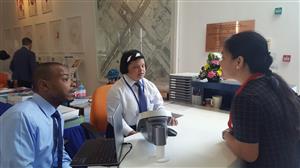
Full-range services in Inclusive Education and job readiness
PRIDE is a modular programme for people with disabilities covering the areas of training (from the age of 4), vocational preparation and job placement. Participants in the PRIDE program can either attend the Manzil Educational Center on a full-time basis or complete individual programs on a part-time basis
Manzil Center, People Receiving Independence & Dignity through Empowerment (PRIDE), United Arab Emirates